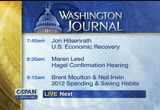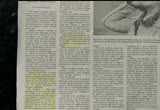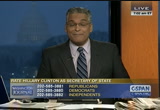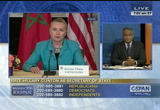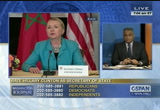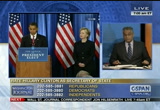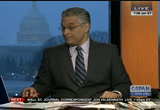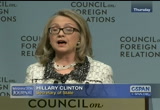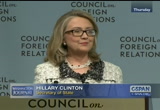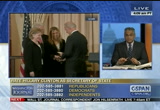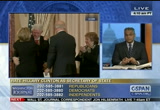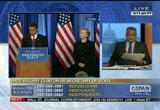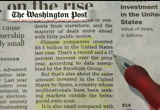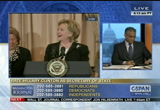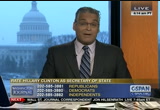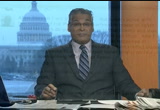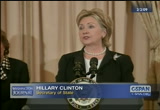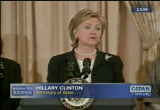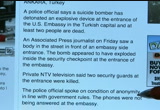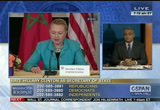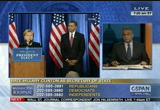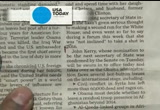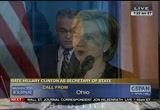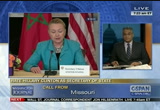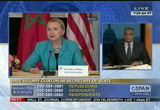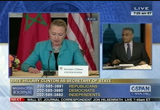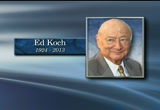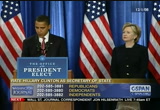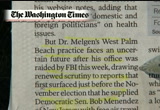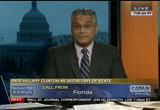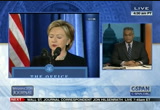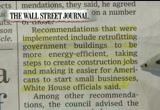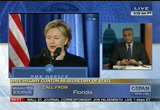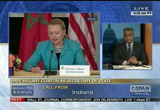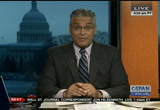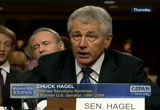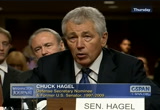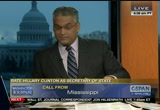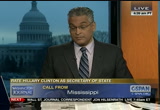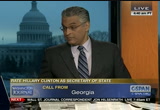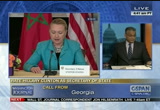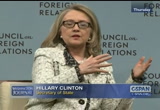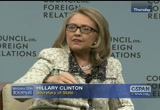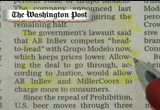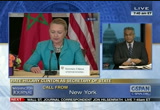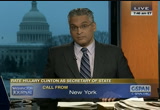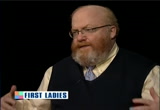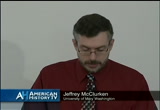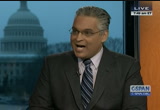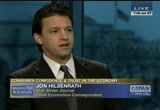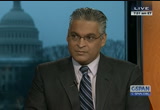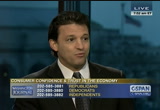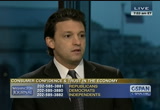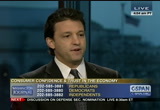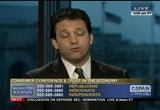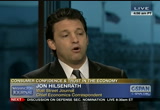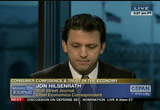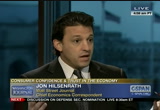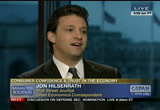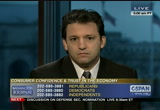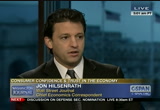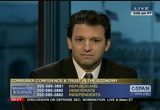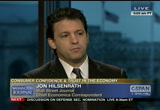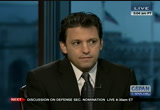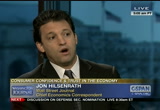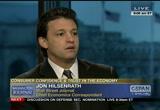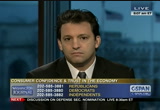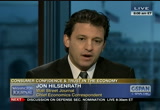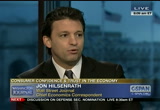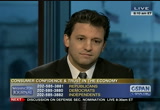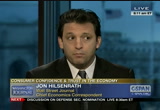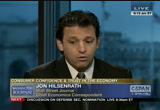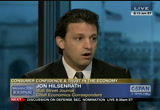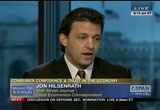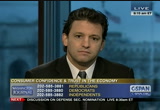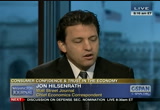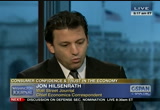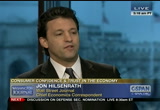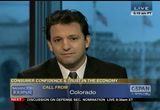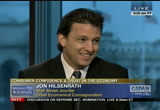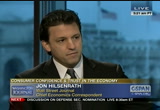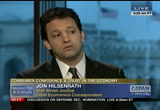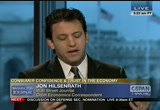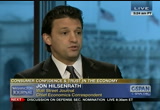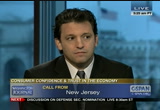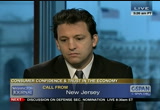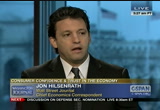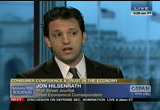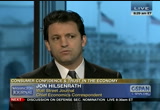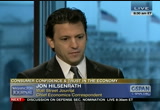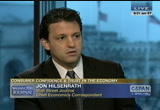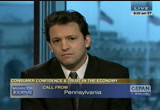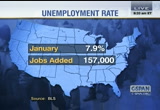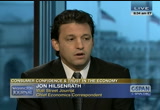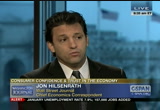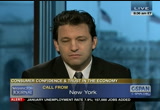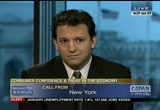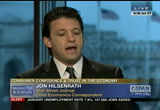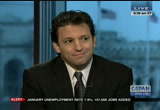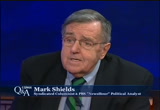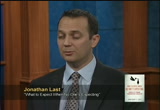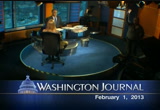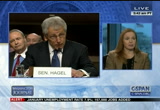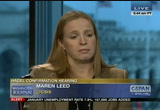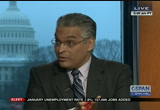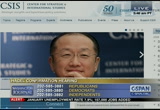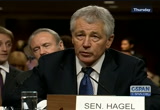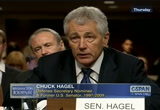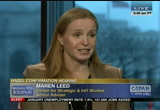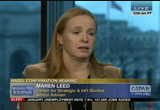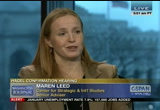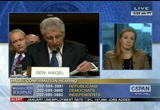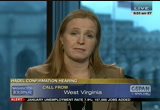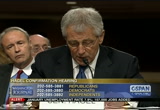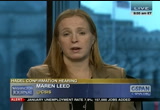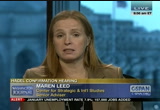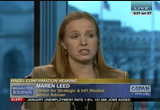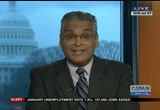tv Washington Journal CSPAN February 1, 2013 7:00am-9:00am EST
7:00 am
♪ host: this is just coming across the eight key. there has been an explosion outside the u.s. embassy in turkey. also there are reports of several people being injured. former new york city mayor ed coach who apparently died as a result of congestive heart failure -- he was 88 years old. at about 8:30, we will examine yesterday's confirmation hearing with a chuckle. for our first 45 minutes, we'll take a look at hillary clinton, almost 1 million miles traveled as she served for a president. we will take a look at her ten-
7:01 am
year and to wait how she did. she spent her last day in washington today. call us at -- if you want to send this tweet, do so at @cspanwj. we have had people responding to our question on facebook.com/c- span as well. senator kerrey will be sworn in later on today as well. secretary of state clinton spent her last day as secretary of state. the washington post has this headline --
7:02 am
7:03 am
michael hobbs saying -- want to join us on the phone? the numbers will be on the screen. indiana, our independent line. caller: good morning. i think she did a pretty good job. she was a good secretary of state. i think she was one of the best we have ever had. host: what can you point to to back that up? caller: we are more respected now around the world and we were during the bush administration. host: go ahead. caller: our country is more
7:04 am
respected now than it was four years ago. i think she was very good at foreign policy. i think this will help her in 2016. host: we go next to jeff, from mississippi, the republican line. caller: good morning, how are you? i would rate her at about a 2. she got sworn in, she looked good, she flew around the world, and that was about it. there is nothing she has accomplished, and i do not think our allies are pleased with her. our enemies in the past believe in the -- the best predictor of future behavior is past behavior. the only thing that bad people
7:05 am
in this world understand is force. i do not think talking to them and making it nice with them is actually going to do anything. host: you made a statement about our allies and their perception. can you expand on that? behind wthe lead from strategy got two diplomats killed and three brave americans killed in libya. what responsibility has she taken for that? none. she said to the american people, what difference does it make how that information was disbursed to the people? >> you can see that hearing on a c-span.org and watched those
7:06 am
hearings for yourself. this is maverick off of twitter -- an overall background about what she did as far as major accomplishments -- she traveled to 112 countries, according to information from business week, 79 overseas trips in total. by hundred 57,000 miles logged -- her first trip was in february 2009, japan, indonesia, south korea, and china. her 79th trip took place in december of last year, the czech republic -- republic, belgium, ireland, and northern ireland. stella on our democrats line from california. good morning. host: i would give her a tent. she is --a 10. 10.s a fabulous -- a
7:07 am
she is a fabulous representative for the united states. as far as 9/11, bush and cheney did not take responsibility. specifically? caller: what she has done for women's issues. host: in this portion from the speech, she talks about united states role in what she called smart power in a world where she says levers of influence are changing rapidly. here is what she had to say -- >> we have to be smart about how we use our power, not because we have less of it. indeed, the size of our military, our economy, and the influence of our diplomacy and the creative energy of our people remain unrivaled. no, it is because as the world has changed, so to have a level
7:08 am
-- the levers of power that can most effectively shape international affairs. i have come to think about it like this. truman and acheson were killed in the parthenon with classical geometry and clear lines. tellers or a handful of big institutions and alliances dominated by major powers. that structure delivered unprecedented peace and prosperity. time takes its toll, even on the greatest edifice. we do need a new architecture for this new world. more frank gehry than formal greek. some of his work at first might appear have howser. in fact, it is highly intentional -- half hazard. in fact, it is highly
7:09 am
intentional and sophisticated. today, we need a dynamic mix of materials and structures. american military and economic strength will remain the foundation of our global leadership. as we saw from the intervention to stop the massacre in libya to the rate at brought osama bin laden to justice, there will always be times when it is necessary and just to use force. host: that is the secretary of state who spoke at the council on foreign relations yesterday. texas, our independent line, go ahead. caller: i would like to give her a 0. i think she is personally responsible for the deaths of americans in benghazi. i watched on your c-span show her answers to the questions in the senate -- her answer was that she did not read these notes, not a benghazi requesting more security -- coming out of benghazi requesting more
7:10 am
security. you can have emergency faxes or hire a couple people to read these faxes. they are coming from americans in a war zone. you did not know that it needed more security? if you did not read them, you're not doing your job. host: this is colombia station, ohio, on the republican line. caller: she should have resigned already. we know that that is not going to happen. there is nobody in the media -- she is such an amazing woman, she put in over 1 million miles, she got her travel miles, and i am proud of her as a woman, what she has shunned. she stuck with clinton who was
7:11 am
with a college intern way back. she would be the worst president. i thought we had the worst with this one. host: what adds up to your reading -- rating of f? okay, he's gone. democrats line. caller: i would defer -- give her an a. obama was the face, but hillary was constantly on the road. i want to say something about hagel confirmation. host: which we will talk about at 8:30. caller: people have to understand -- host: i will have to keep it there. if you want to join us at 8:30, you're welcome to do that. international related, this is
7:12 am
7:13 am
secretary of state hillary clinton and her performance over the past four years -- we are getting the opportunity to assess how she did in her position you can do so by phone, give us a call that best represents you, and twitter and facebook are available to. st. paul, minnesota, the democrats' line. guest: i think she did an admirable job. here is one thing that troubles meet -- it is cheerleading versus effectiveness. i think condoleeza rice was one of the most dynamic individuals to serve. condoleeza rice was admirable too. she was great. she was articulate, well educated, did some wonderful things, knew how to handle the power of male egos, but the
7:14 am
press would not give her the same accolade. the general media would not give her the same accolade, not because she was not constant, but because of her political ideology. i think there is some bias in reading hillary clinton -- rating hillary clinton. >> that was lawrence from -- host: that was lawrence from st. paul. "the washington post has this as far as analysis -- nebraska, on the republican line. caller: i would like to make a few comments about hillary clinton. think the only reason that she
7:15 am
ever had her job was because of her husband built. she has done exactly what she has been told to do by the president, and a lot of us are not in tune with president obama's schedule. especially when we have at least lousy deals, whenever a person throws her hand up in the air and does not want to admit to any responsibility of the job done poorly that killed some of our american -- not happy with her performance ticket she is just mirror of -- performance. she is just a mirror of president obama and bill clinton. host: a comment on facebook -- about 100 people making comments as far as the performance of the secretary of state. facebook.com/c-span. that is how you do it.
7:16 am
to give you a sense of history, here is the secretary of state, from her 2009 swearing in. >> when i came into this building for the first time, a week or so ago, i told the assembled state department employees and repeated it again at usaid that we are all on the same team, and it is america's team. we have in the leadership of president obama somebody who wants us to reach out to the world, to do so without illusions, understanding that the difficulties we face cannot be wished away, but meeting them forthrightly and smartly cajon, and that we want to seize the opportunities that exist as well. i talked in my confirmation hearings about smart power. smart power relies on smart people. we have an abundance of them in this building and at usaid, but
7:17 am
i have also told my teammates in the state family that we will have to be smarter about how we do what we must for our country. there are many ways that we can improve on what we do on a daily basis, and i want to work with my friends in congress on behalf of our administration to really look for those deficiencies -- efficiencies and changes that will make what we do a more effective, more cost effective, so we can be out around the world delivering america's message, certainly doing all we must to protect and defend our security, but also advancing our interests and furthering our values. for me, this has been an amazing personal journey. as joe laughingly referenced,
7:18 am
neither one of us thought that we would be standing here together and doing what we are now doing together. life has a funny way of unfolding, and politics is even stranger. host: that is hillary clinton from 2009. this is the associated press story concerning an event that place in turkey, saying that police officials say that a suicide bomber detonated an explosive device at the entrance of the u.s. embassy in the turkish capital and at least two people are dead. -- cindy in alabama, good morning, on the democrats' line. caller: good morning, thank you for taking my call.
7:19 am
i think hillary did an awesome job. i would give her at least on nine. she had a daunting task ahead of her when she was confirmed because this country did not look good to our allies and to the rest of the world. fter all, the debacles with george w. bush and the former administration. thanks to her, we got back a lot of support that we needed, especially in these trying times ahead of us with iran. we needed to gain a lot that support back. host: what is it about her role in that position that helped that long? caller: -- along? caller: during the clinton administration, he is just such a world ambassador, and i think that leaders of the world out there had a lot of faith in her
7:20 am
and her husband's administration. she had a lot of convincing to do that the united states could get through hard times and that things were going to change. it looks like she has done an outstanding job, because we certainly have a lot of support back and confidence that we did not have four years ago. host: lafayette, louisiana, the republican line, peggy. caller: as a woman to another woman, i feel that she failed the women in the united states. i have so much to say about the crime against women in this country, especially of women that lives alone. there is no advocate program in this united states of america. she had the ability, the power to get some money great programs done in our country, and she
7:21 am
failed. i do not see how the previous caller can say that she restored respect in our country to other countries. that is phenomenal. what a statement. that is what i have to say. there are so many avenues that this country, our country, the united states of america, has failed american women, the elderly women that live alone, even the men at live alone. we have no programs that advocate for them. that is not -- that is my statement. host: a write up of the speech she made at the council on foreign relations, the last couple of paragraphs look at what faces a john kerry, now that he assumes the position today. he will be sworn in today. it rights -- writes --
7:22 am
some of the analysis being done with the outgoing secretary of state and john kerry coming into the position. the outgoing secretary of state is what we're talking about for the remainder of our time, the next 20 minutes or so. ohio, an independent line. caller:, foresees an. i give her attend. she is one of those people -- thank you for cspan. i give her a 10. all the people attacking about benghazi, but about iraq? to cut funding for benghazi?
7:23 am
the republicans. the republican neocons need to go away. host: what about her accomplishments? caller: whatever job she does, she does a superlative job. she's one of those kinds of people. it does not matter that she is a democrat or any of that. she is a hard-working person. she is a hard-working lady. she makes all of the 20 white harris who put her down bad. -- white hairs who put her down bad. caller: president obama is a master of all presidents. he has a nice young black woman working for him. he made sure social security would not get caught, the rich were going to pay, while he manages this entire country.
7:24 am
we had men and women who are guilty of not updating the secretary when a letter our message comes in. that affects hillary clinton for president of the united states. women alone are not guilty of that. there are many men in this country that never hear a word, not of their office. like one man said before me -- coming out of their office. they're on top of things, they're making money, but they never hear anything. hillary clinton had a beautiful chance to do a lot of things. once they get to the top, they lose their heads. they are doing everything for the rich and powerful in secret places, nothing for the common people. host: -- from north carolina, on the republican line. -- josh from north carolina, on
7:25 am
the republican line. caller: i will try to give an accurate and fair assessment of hillary clinton as secretary of state in a comparative wage. i would give her a c, an average rating. maybe because the way the world stage has played out during her tenure -- my f is reserved for people like madeleine albright, who during the rwanda genocide, along with bill clinton, refused to call it genocide and turned away. during the kosovo operation, as we have seen with comments from madeleine albright, there is a pretty great antipathy towards the serbs. i think the secretary of state needs to be an international scholar. if you look at condoleeza rice, henry kissinger, they have
7:26 am
advanced degrees in political science and international relations. those make effective and diplomats. it does not matter on popularity. it is a skill in which they can do their job. i give hillary clinton a c. host: the mayor of a bloomberg riding on the passage of at koch -- ed koch -- he was our most tireless and guileless civil crusader. his tough and determined leadership and responsible fiscal store check, he lifted the city out of its darkest days and set it on course for an incredible comeback. we will miss him dearly. his wisdom will forever be part of the city he loved so much. his spirit will live on not only at city hall and the bridge that bears his name, but all across the five boroughs. the former mayor passed away this morning, at 88 years old,
7:27 am
due to congestive heart failure. justin, in maryland, on the independent line. caller:, for taking my call. -- thank you for taking my call. would give hillary clinton a -- i would give hillary clinton a d. i do not understand how somebody in a position of power with so much information about the situation going on in other countries could ever send a force of people into a country that they know is unstable with the same amount of security that they would send to a place like france or germany. for my part, hillary clinton has left much to be desired for her position. i think possibly the whole
7:28 am
incident that went down could have costar -- cost her her political career as far as her ambitions are. host: two stores connected to a political donner connected to bob menendez -- it a go to the front page of the new york times -- if you go to a follow- up story in the washington times, it is written --
7:29 am
7:30 am
she went to the senate, he tried to chris piper, and she jumped -- tried to crucify her, and she bandwagon. on the caller: i think hillary clinton was held back by obama. i think a majority of people would say that obama appointed hillary because he did not want her running in 2012, which was marked on his part. i believe the was a lot of ill will between clinton and obama, which restricted her and her performance. her performance, aside form that, i think was under par. i think she would be better at -- host: "the wall street journal"
7:31 am
7:32 am
caller: good morning. i think hillary clinton had plenty of opportunities to do well for our country. she spent many years in washington. she has the experience. when you look at what she has done a, the world is more dangerous than it has been in my lifetime. i am 80 years old. host: can you point to a major accomplishment that she achieved? caller: the only thing i can recall is that she was in charge of the state department and she let four of our subordinates get murdered over there in benghazi. no, i cannot think of anything that she has done that was outstanding or even satisfactory. on a scale of one-time, i would have to give her a zero. -- 1-10, i would have to give
7:33 am
her a 0. i think obama had something to do with it. they were not friends, and and she was under stress from obama. it limited her performance. she is a nice lady, but secretary of state is a pretty important job, and i i don't but she did much to help our country. >> of victor joins us from fort wayne, indiana, the democrats' line. -- host: victor joins us from fort wayne, indiana, the democrats' line. caller: when she was talking about these four guys, she did not come out and tell the other people white they are getting paid. here we have water dead people, and we do not know anything about it. even though she is a smart woman, she is not smart to be in politics, if she is honest about it.
7:34 am
should should tell the american people the truth about it. she should say that she did not -- should not have to go in there a if she did not want to. you're working for the american people. you should want to go on there. she should be helping our country out. she is a smart woman, but she's in a bubble or the average american person is not. host: we will continue our conversation about the outgoing secretary of state torrey clinton. at 8:30, we will take a look at yesterday's hearing. chuck hagel -- to give you a sense of the interplay, you can see the whole exchange of questions on our web site, c- span.org. here is a section featuring senator john mccain talking to senator hagel about the comments he made about the surge in iraq. >> will you please answer the
7:35 am
question? were you correct or incorrect when he said that the surge would be the most dangerous foreign policy blunder in this country since the vietnam? were you correct or incorrect? >> my reference -- >> are you answering the question? that is a pretty straightforward question. i would like an answer on whether you're right or wrong. you're free to elaborate than. >> i am not going to give you a yes or no answer. >> let the record show that you refuse to answer that question. please go ahead. >> if you like me to explain why a -- >> i act like an answer. >> i will not give you a yes or no. it is far more complicated to that. i will defer my judgment to history. as to the comment i made about the most dangerous foreign policy decision since vietnam,
7:36 am
it was about not just the search but the overall tour of choice going into iraq. -- war of choice going into iraq. that particular decision made on the search, but more to the point, or war in iraq, i think it was the most fundamentally bad, dangerous decision since vietnam. aside from the cost that occurred in this country to blood and treasure, aside from what it did to take our focus off of afghanistan, which in fact was the original and real focus the threat to this country, iraq was not, i always tried to frame all the different issues before i made the decision on anything. as you said, senator, we can have differences of opinion, adn
7:37 am
that is why i took the canyon i did. >> it is a fundamental difference of opinion, senator hagel. host: this was captured in the "los angeles times" -- beverly joins us from pittsburgh, pennsylvania, talking about the tenure of hillary clinton. caller: i would like to say that looking over the tenure of mrs. clinton as position of secretary of state, i really cannot say that she has had any noteworthy accomplishments. i do not know if this has to do with president obama's oversight. if we take a look at the time. -- time period of the benghazi incident, we have fires across africa through the middle east
7:38 am
and northern india. i just cannot justify what secretary of state clinton did not evacuate our embassies when other countries recognized that host countries could not protect our ambassadors and the personnel there. host: gallup did a poll, taken a look at the most admired women of the year. hillary clinton topped the list, with 21% of responders mentioning her specifically. rennee, mississippi, on the independent line. caller: i cannot think of any notable accomplishments clinton has done. in terms of benghazi on libya, the united states government, and this includes john kerry
7:39 am
and john mccain, helped the terrorist to overthrow the khaddafi regime. mr. khadafy had the terrorist groups under control until qatar and saudi 0 rupiah -- saudi arabia decided to arm troubles and terrorists -- the rebels and terrorists. now we moved to syria. hillary clinton has been the mother of the terrace that are terrorizing syria now. -- terrorists that are terrorizing syria now. she made sure that they got training to blow up civilians in
7:40 am
syria. she has been an utter failure. host: columbus, ga., on the democrats want -- georgia, on the democrats line. caller: i have lived a portion of my life abroad. i have learned to see my country, america, through the eyes of those who view us from the outside in, instead of the inside out. i am also a bureaucrat. i am retired bureaucrat. one of the things i learned as a child is that a little knowledge is a dangerous thing. i also learned that my feelings, my emotions and not mean that i know. it just means that i feel, i
7:41 am
think, and i believe. host: to your question? caller: hillary clinton and barack obama are both minorities. in the united states. most women and black men have had very, very much difficulty -- host: what would be the success of hillary clinton? what would be one of her successes? caller: success would be that -- her success would be that she has done a job that most men could not do. the people are talking about americans in the embassy that were killed. yet that same day in afghanistan, iraq, and
7:42 am
everywhere else we are in armed combat, americans were killed in there too. host: we will leave it there. one more piece of the feature on heller clinton -- this is for talking about, as our caller referenced, the perception that the world has the united states, especially when you look towards the middle east. >> it is fair to say that the united states for the last decade has not been viewed favorably by very high percentages of the people in any of the countries in the middle east or north africa or a number of reasons, some of it rooted in our strong support for israel over the many years of israel's existence as a state. this is not -- the obama administration, the bush administration, the clinton administration -- this is the views of many people in the region about america.
7:43 am
i think it is unfortunate because clearly what the united states stands for is absolutely in line with what eric revolutions have been publicly espousing -- arab revolutions have been publicly espousing. i think we have done, and i take responsibility along with our congress and private sector, we have not done a good job in recent years in reaching out in a public, media way, or in a culturally effective way, to explain ourselves. i am always encountering some conspiracy theories that are totally off base, wilde, made up stuff, that the media in the region promotes about united states, and it is absolutely untrue. our response has been, nobody will either believe it, or we cannot possibly contest it.
7:44 am
7:45 am
indiana, on the republican line. caller: i think she has been quite successful in bringing the mainstream media to her back and call. -- beck and call. i would challenge anybody to tell me or anything in the world has been any better under her service. president bill looks better now. he looks good because of the president we have right now. that is why so many people are looking back and saying, gosh, i wish we had this now. host: sam from rochester, new york. caller: the secretary of state is directed by the president of united states. i used to be a republican. i am an independent at this point in time. hillary clinton has not done much in her tenure in politics quite frankly. i remember her being part of a
7:46 am
medical solution when president clinton was in place. she failed there. she failed as a senator in new york. i live in new york, and i think she has failed frankly in the national scene. look at korea -- look at iran -- look at benghazi, you look at various areas in the world that are still upset. they have a hard time dealing with the united states in general. and she has been a puppet. i think that is pretty much the way politics has gone over the past four years. we have no strength in the world. people that are out there that want to see the united states gadahn have clearly indicated that. thank you. host: that is the last call we will take on this topic. we will teak -- we will speak to the chief economics
7:47 am
correspondent for the wall street journal next. we'll talk about consumer confidence in terms of the economy overall. then we will talk about the confirmation hearing a chuckle that took place yesterday. we'll have that and more when "washington journal" continues. ♪ >> she loved being for sleep. it was julia tyler that order the band to play "hail to the chief" when the president appears, something we still do. subject to criticism, it was too late tyler -- julia tyler who owre purple plumes in her hair.
7:48 am
it was like she -- >> richard norton smith on a julia tyler, who married while the president was in office recorded -- office. "the first ladies: influence and image." the series begins on president's day on c-span. >> as we talk about the movie itself, it is not a stretch to argue "gone with the wind" is the most popular american historical film ever made something like 90% of americans have seen the movie at least once. jim cohen noted that it has become a worldwide phenomenon. the book was banned by the nazis, while the french resistance sought as a symbolic
7:49 am
representation of strength amid occupation. it was one of two movies requested by vietnam cultural exchange operators. in japan, it was created into an all female musical. >> "gone with the wind"'s portrayal of southern history. 3. c-span >> "washington journal" continues. host: the road apiece saying how the trust deficit is hurting the economy. what are you trying to say about that? guest: we usually do not talk about trust deficits. talk about trade, budget deficits, things we can measure.
7:50 am
i'm talking about a breakdown of trust in american society, in particular in the institutions that make our economy go. when you look at measures of trust from surveys like a gallup or the pugh institute -- the pew institute, or even newspapers, congress, large corporations, banks, public schools, they have all been going down for many years. for a lot of them, this decline in trust was intensified leading up to and going into the financial crisis. there are a lot of reasons for these things we can talk about. what we were trying to get at in the story that -- is that this matters to the economy, and trust breaks down. there was nobel prize-winning economist who 40 years ago said that every commercial transaction has within it an element of trust. when you trust your counter party, you're more likely to
7:51 am
engage in a transaction. when trust begins to fray, and people become suspicious of each other and each other's intentions, it has a way of slowing down economic activity, holding back economic activity, making people less willing to engage in transactions. there are a lot of different examples. one of the more glaring ones is what we have seen between congress and the white house. it is not just -- we talk a lot about ideological differences between republicans and democrats. there really are some fundamental trust problems between the two sides. as a result of that, we see every few months we are having these budget practices -- fracases that way and the economy. these two sides had deep skepticism about engaging with each other to do deals picket host: -- to do deals.
7:52 am
host: how does that work out economically? guest: the uncertainties about the deficit right now really have weighed on market in the last couple of years. it could be weighing on confidence on businesses and households. a lot of surveys show that. if the two sides trusted each other, they might be able to come to some long-term budget agreement. we see in the actual economy, and one of the most glaring examples is in the mortgage market. during the bubble, you could say there was too much trust. you had banks handing over mortgages, and people -- to households that not have to document their income. they could just write down whenever they wanted their income, and they got a mortgage. you had mortgages going to mortgage-backed securities that investors trusted ratings, the
7:53 am
credit ratings on these securities. of course, the securities class -- collapsed. trust in that market broke down during a financial crisis. what we have seen since are many layers of mistrust. if you talk to people out there who are trying to refinance the mortgage or try to get a new mortgage, they will tell you about the paperwork they have to go through. the months and months of scrutiny that they go through to refinance loan -- host: is there an underlying sense of, why should i trust the bank? guest: there is mistrust on every side. the board does not trust the bank. the bank does not trust the bar. -- the borrower. it is not just between those two. it is between the banks and freddie mae -- fannie mae and freddie mac. there is an apostle about who
7:54 am
has to hold a mortgage if the market goes bad? -- a tussle about, who household mortgage if the market goes bad? over the last couple of years, there is a problem called put back. the banks are afraid that fannie mae and freddie mac will put the mortgages back on that if the ec documentation problems. this is one of the reasons why we have been in an environment for the last couple of years where the federal reserve has pushed interest rates were low. you would think that would help to get a mortgage market going, but it has been slow to recover. there are signs of progress here which we could talk about. we are starting to see mortgage writing happening with some pickup in mortgage writing, but it has been a slow recovery, in part because all these different levels of the mortgage writing process, trust everyone of these points broke down during the financial crisis.
7:55 am
host: trust as an element of the economy. our guest wrote about it, and you can ask him questions about it. he joins us until 8:30. here are the numbers to reach out to him -- if you want to send us a tweet, @cspanwj. or reach out was on facebook, facebook.com/cs and. if trust as a rebuilding exercise company -- facebook.com/cspan. if trust is rebuilding exercise company -exercise- -- exercise, how do we fix it? guest: we have had some long run
7:56 am
at trans which i think are affecting -- trends which i think are affecting it. it used to be that media companies dominated the war -- the airwaves. now we have a world dominated by investigative reporters. what we're seeing is some signs that we might be seeing, early signs of recovery in some areas. i will give you a few examples. the mortgage market -- we have seen banks starting to increase their mortgage portfolios. that is one example. i mentioned the securitization markets, where mortgages get thrown into these mortgage- backed securities. that market is in bad shape. i have seen other secured as asian markets -- securitization markets -- auto loans, student loans, those might be signs that
7:57 am
investors are gaining faith. also, ipos -- you look at measures of households trust in the stock market, it has been damaged by all the volatility -- the volatility in the stock market we have seen over the past three years. ipos had been way down, but last year, we saw it kept -- pick up. might be seeing improvements. in some surveys, a public- relations firm did its own survey of trust late in the year, and that picked up little bit in 2012. we are seeing some signs of improvement. there is a long way to go. i think there are a lot of things at different players have to do to regain the trust. host: before we go to calls, the was a survey of a percentage of americans who have a lot of
7:58 am
confidence in the following -- low numbers for tv use, low numbers for banks, and even more numbers for congress. guest: i should say that newspapers are down there too. i write for a newspaper. it is troubling to see this. i think every journalist, every congressman, every banker needs to think about what this means, why it is happening, and what they need to do to win back the trust of the people who were looking to their services. host: what kind of face to the need to put on to reestablished the trust? guest: is it a face or is it an action? it is a very good question. some of the things we're seeing are a part of life right now. the media, for example, the fact of the matter is "the wall street journal"is competing in a landscape with social media,
7:59 am
with blogs, with startups on the internet or bring different perspectives and different angles on stories. there are constant challenges to our credibility. what do people have to do, what kind of faces do they have to put on? you have to be paid in trust for the ways. one interesting thing from a journalist perspective, there are a lot of blogs, a lot of internet sites, they are scrutinizing what we do. i think that is really good. sometimes you see people in that realm not be caving in trust for the ways, taking numbers and running with them -- not be eating in trust for the ways, taking numbers and running with them -- behaving in
8:00 am
trustworthy way, taking numbers and running with them. caller: i would like to look at things in parallels. the way i see it, the way our government is going, it is the way steel mills went. we've got to fix our roads and water systems. we have to spend money in order to save money. you put people back to work by doing those things, you will cut deficits. look what happened to the steel mills. the steel mills went under in this country basically because they did not reinvest in their company. we need to reinvest in our country before it is too late. thank you. host: there are debates on capitol hill about which avenue to take, whether to cut spending or invest in our government.
8:01 am
guest: that is at the core of what democrats and republicans are arguing about. this is not really a question of trust from my perspective. maybe it is. two sides are talking past each other. what we need is some kind of long run plan to address the budget deficit. it is the case that the economy needs more investment and more growth in the short run, but it is also the case, any shards of long run entitlement commitments that the united states has found itself to, it's not sustainable. something has to be done over the course of the next 10 or 20 or 30 or 40 years to address the entitlement commitments that we have made. as far as the steel mills go, a lot of the manufacturing parts of the economy, and detroit is a
8:02 am
good example, there were commitments that big manufacturers made it to have long run health care coverage of employees that in the long run they cannot afford. the need to invest in the short run but also have a plan for dealing with deficits in the long run. you cannot ignore it. host: justin and is on the and in the line in maryland. caller: speaking from a position of relative ignorance, i am only 18 years old, but i have been looking into recently the federal reserve and its policies and how they effect the economy. i have been studying the well cycles of our history since the inception of currency. i want to know what's your take is on the federal reserve transparency act and if you think that will negatively or positively impact trust and confidence which people and the
8:03 am
banks. i think a lot of people, as you said, with social media and online blogs, are starting to realize this whole system been based on debt and government borrowing money for interest is essentially a system built to fail and that everyone is in debt for it. host: thank you. guest: let's start with the federal reserve. one of the institutions whose credibility has been damaged -- was damaged by the financial crisis, clearly was the federal reserve. in the 1990's and earlier part of this decade, alan greenspan, a former chairman of the fed, was revered and was seen as a person -- the fed was seen as an institution that was guiding the economy with perfect foresight.
8:04 am
there was very low inflation and we had decent growth and people revered the federal reserve. the financial crisis changed all that. there was a lot of skepticism and scrutiny about what the fed is doing today. that's probably for the better, because as it turned out, the fed got a free pass during -- in the years leading up to the financial crisis. there are some bigger questions about what is it doing today. i don't know if you want to get into that, the low interest-rate policies that the fed is engaged in today to get the economy going. that goes beyond the realm of trust. host: but the idea of transparency, even ron paul is calling for ways to bring more transparency to the federal reserve actions, to affect the people at large. guest: let's talk about said transparency -- fed
8:05 am
transparency. in the 1980's it used to be the case that when the federal reserve decided to change the short-term interest rates, but went into the markets secretive leader and bought a certain number bonds in order to affect short-term interest rates and they did not tell anybody what they were doing. there were few very well-paid guys on wall street who looked at what the corps reserve did in many markets and had decided that the total reserves had cut short-term interest rates. i will give you some examples. federal reserve meets every six weeks. they put out a statement right after that meeting saying what decisions they made and how they see the economy, who voted for and against the decision. push-out minutes of what was discussed in the meeting three weeks after the fact. it takes them five years to put out transcripts of the meeting, but we never see transcripts of
8:06 am
meetings that happen in congress behind closed doors. the fed has a balance sheet which has grown extremely large. the fed puts out its balance sheet every we. every weekday updates what is in their holdings. that is something no american corporation does. the fed was criticized rightly for being too secretive during the crisis for its disclosure of the banks that for getting its loans. one of the things that changed after the financial crisis of the dodd-frank act, but the fed acts to disclose all the banks that got loans from it during the crisis. if the fed was worried it would cause a stimulus problem if they disclose who their lending to as a lender of last resort, that it could destabilize the banks and then people would think there was something wrong with the banks. so what they have done is now
8:07 am
they are putting these out with a lag. but there's a lot more disclosure than they used to be. there might be areas returnee to be more. i think they need to get some credit for having made progress in the last few years. host: terry on the republican line in minnesota. caller: thanks for taking my call. your guests spoke about the dreams of paperwork that boris have to go through. -- borrowers have to go through. i purchased a rental property a couple years ago. it represented a small percentage of our assets. but the amount of paperwork we went through, we bypass the banks, just because it got to the point where they wanted to know not only how much we had but where we were spending our money. and how often we were howit. it was interested, so we
8:08 am
bypassed that. my question is regarding trust. in the housing market situation, it looks like the politicians really wanted to get people in houses, so they created an environment for lending institutions to do all this lending, irresponsible lending. i guess my question is how long -- i don't think it's a matter of when or if, but when these politicians and lending institutions will start wanting to win elections again and create policies that get us back into this housing crisis that we were coming out of. host: thank you. guest: that's a fair question. right now the fed has pushed short-term interest rates to nearly zero. they're buying $40 billion a month in mortgage-backed securities and $45 billion a month of u.s. treasury bonds to push long-term interest rates lower.
8:09 am
they are very actively trying to ease credit conditions in the mortgage market and of course the united states treasury is now the guardian of the two biggest mortgage lenders in the country -- fannie mae and freddie mac. they are very actively trying to push the housing markets off its four. i think it's a fair question whether at some points -- it is hard to imagine after having gone through the bust we just went through that we could have another housing boom and another house in bhopal. but i would not dismissed that possibility. in the 1800's we would have bubbles.ccessions of p you would have a bubble in railroad stocks one year and then 15 years later you would have another one. it seems out of question that it could happen so soon after we
8:10 am
just went through this house and crisis, but i think these guys in washington need to keep an eye on that possibility. host: spring hill, florida, on our democrat line, sheldon. caller: good morning. why are we being so kind to the banks and wall street? the banks lent people mortgage money that they knew they cannot afford -- adjustable rate mortgages. wall street took those mortgages and other securities, showed that to the public knowing it was worth nothing, and then received millions of dollars in bonuses. after they went out, the government bails them out. i am very happy that the 18- year-old understands our financial system. for those that don't, the fed -- and i don't know how they get their money -- they lend the
8:11 am
banks $10 billion, of which they can then lend 90% for interest. for while it was pretty high interest. so they are putting up nothing. they may have put up their own money originally. i don't know how much of that they spent. but then they get back interest, pay back the fed, and the young man is right, the system is made to fail. host: i also have this from twitter -- guest: two comments. one on the regulation and the other on the caller's point. already says is fair, but i would put a few other layers into it. one is the credit rating agencies, ridiculous triple-a
8:12 am
rating is on some of these mortgage bonds that were created, in retrospect. we cannot let american households off the hook. millions of people to the money. they borrowed the money. it is every individual responsibility when he borrows money to say? can i pay say? we want to hold government accountable for borrowing so much money and running up big deficits. the fact of the matter is american households borrowed a lot of money, took out a lot of mortgages. a lot of them were probably misled on the terms and conditions of some of these mortgages, so that is one point. households were part of this process. on regulation, that's important, because we are talking about how the mistrust in society affects the economy and the growth outlook. one thing that happens when
8:13 am
there's less trust is that the regulators step in. we certainly see that. regulators -- we had a whole dodd-frank act, the financial overhaul. you talk to any banker right now and he will complain for a long time about all the new rules and regulations that are being thrown at the financial industry. but that is an outgrowth of mistrust. when the public don't trust these institutions, they will regulate them more. you could argue that it is necessary, that we need rules and police in the financial markets. but the fact of the matter is that when you have more this scrutiny and oversight, it inhibits transactions, it inhibits commercial activity. so it's one of the restraints that i think we have seen on economic activity. host: on twitter --
8:14 am
guest: right. host: this goes back to the regulator question. guest: the credit ratings agencies are an interesting piece of the story because they're not regulating. one of the big debates that happened in the dodd-frank act was whether the credit ratings agencies -- which should not call them agencies, because they're not the agencies of the government. the credit ratings firms, there was a debate about whether they should be regulated by government regulator. their argument is that there's a first amendment that protects them. if they want to put out ratings on firms, they have a first amendment right to do that. but they certainly stumbled and fell and failed the financial system leading up to the financial crisis. they took mortgage-backed securities, which were structured and very complex
8:15 am
ways, that it turns out very few people understood. and put triple-a rating on some of these things. investors went and bought them and that was one of the things that fuel all these bad mortgages. piece isn hilsenrath's called "how a trust them as it hurts the economy." host: we have wisconsin on the democratic line. caller: good morning. i have a question. are you willing to name the financial institutions that make up the federal reserve and probably have for the last 40 or 50 years? people should know this, that it is not in any way -- does not have anything to do with the federal government. you bring up the word "entitlement." let's talk about entitlements for senators, governors, and
8:16 am
politicians at large, who if they get fired after four years or six years are still entitled to a large pension. if you get fired or i get fired after four years, that says basically i did not do my job. i don't think that anyone would say you worked for four years, so here's a nice pension and continued health care. host: let's let our guests respond. guest: let's talk more about the federal reserve. there's interest in that. i should explain about its history and where it comes from. caller is asking who mixup the fed. it was created 100 years ago by an act of congress. it has an unusual structure. and an unusual history. the fed that we know today goes back 100 years, but the united states has been having arguments
8:17 am
with the central bank all the way back to the days of alexander hamilton and thomas jefferson. the first bank of the united states was a central bank which was basically the bank for the u.s. treasury. hamilton and jefferson argued about it. there was a second bank of the united states that was created. andrew jackson basically ended its charter. there's a long history of mistrust in parts of the united states about the central bank and what it does. back in the derickson and hamilton days, a lot of the farm state bankers did not trust the first bank of the united states. -- back in the days of jefferson and hamilton.
8:18 am
there is a federal reserve board in washington made up of seven governors and chairman who is ben bernanke. then there are 12 regional fed banks. they're all part of this federal reserve system. the regional fed bank, every chartered bank of the united states has to pay in capital to the federal reserve banks and in return they get a dividend. but these are not banks the way we think of commercial banks. the federal reserve bank of new york is not like citigroup out there trying to earn big profits to return to shareholders. their job is to manage the money supply. it is also to be a lender of last resort in a crisis, which is what the federal reserve did in 2007. when there is a run on a bank, when depositors flee the banking system because they are scared their money will disappear, but the fed is there to do is provide them liquidity so they
8:19 am
don't have to sell other assets, the banks don't have to sell all their assets overnight. that was the role they played during the financial crisis. it is also why there were created 100 years ago. there was a panic in the financial system in 1907. j.p. morgan, the individual, ended up bailing out a lot of banks that were seeing a run. what happened after that was lawmakers got together and said we cannot depend on one individual to bail out our financial system. if we have another financial panic, that is. so they created the federal reserve system. host: bob is on the republican line. caller: good morning. talking about trust, i don't trust the federal reserve. all you have to do is read the minutes of their meetings -- a transcript of their meeting from
8:20 am
five years ago. it's obvious they have no idea of the financials of tuition. i don't trust the wall street journal because they are supposed to be in business- reporting entity. they totally missed the financial collapse. i don't trust the rating agencies. they rated the bonds aaa that were less than junk. and i don't trust the banks who were hiring ratings agencies. finally, what makes most of us americans mad is nobody has gone to jail. host: he does not trust many folks across the board. guest: that's what the story is about, the newspapers, the banks, the lawmakers, the ratings agencies. the financial crisis did deep psychic damage to american
8:21 am
society. we have all these numbers at every day and every week we measure employment and unemployment. host: unemployment comes out in 10 minutes. guest: exactly. but we don't look at the societal fabric, i'm trying to fabric,too. i will address two points. one is no one has gone to jail. that is one of the frustrations that a lot of people have is how could we have had such a collapse and no individual was held accountable. but one of the frustrations that people have. that no one was jailed. but it's a complex problem, because everybody was a part of it. everybody was a part of it, from the person who misstated his or her income to get a bigger mortgage than he could afford to the banker that wrote the bankerto the rating agencies to
8:22 am
fannie mae and freddie mac to lawmakers in congress to allow fannie mae and freddie mac to continue to operate the way it did. that is certainly a frustration. it is a problem that the obama administration has faced in its own credibility. did talk about the wall street journal coverage of the crisis. i think every journalist has to look back on how we performed going into the financial crisis and afterwards. certainly there are lots of areas where we should have had more skepticism and worked harder to impose more scrutiny on the institutions that we have been talking about today. i have gone back and look at what the journal did. i think we did a fairly good job.
8:23 am
i wrote a story in 2005 saying there was a global housing boom which could end in a global recession. we did try to write about a lot of these complicated financial instruments leading up to the financial crisis. so i want to say that i think we did a pretty good job. the same time, we clearly missed plenty and could have and should have done more to shine more light on what was. host: is there something to be seen as far as stressed his concern about what's currently going on on capitol hill with republicans and democrats working together on immigration? guest: yes, this is not something i am covering directly, but at i have heard in my casual reading of this that there's a lot of mistrust. by the way, immigration is an important economic story, because one of the factors that
8:24 am
creates economic growth is a growing labor force. there are countries like japan which have been stagnant for decades in part because they have a very closed society and they don't allow any immigration. their labor force has. been has -- their labor force has not been growing. immigration reform, could push the u.s. economy forceward. from my casual reading of the debates, there was mistrust that grew out of the 1986 immigration reform. conservatives argue -- and this is not something i covered directly -- but they argue that there was not enough enforcement and we ended up getting promises of a crackdown on illegal immigration that never materialized. i believe what they're arguing
8:25 am
today is that they don't want to move forward on a path to citizenship until borders are better protected. host: the overall idea that they're talking together on this effort seems to be on a fast tracked. guest: right. we will see what comes of it. there's a lot of skepticism on both sides. at the end of the day, people do what is in their own interest. republicans and democrats, this might be one area where they have a mutual interest in revising and changing immigration laws. host: middletown, new jersey, bonnie, democrat. caller: good morning. i began losing trust in our economy when i was young during reagan opposing campaign when we started hearing voices telling us that fraud was good -- but
8:26 am
there was no such thing as fraud and that the market could take care of itself. that's when this type of ideology started taking hold. regulations or something that got in the way and inhibited capitalism and there were no protections for consumers, because that gets in the way of progress. it has only escalated since then. this whole thomas friedman and greenspan idea of how our economy to work. there's no free market. the taxpayer pays for the profits. people have been taking advantage of a lack of regulation and oversight. in today's new york times, there's an article of private companies as consultants instead of our regulatory system, because the regulatory system has been starved. they don't have enough people to
8:27 am
do the oversight. host: jon hilsenrath? philosophical a and ideological divide in this country that underlies the debate we are talking about. there is a view that the market should be left to itself and that the economy grows more robustly when a market is left to itself. there is a view that washington regulators should have a strong hand in policing the markets and that the markets cannot be left to their own devices. i think that the financial crisis has clearly changed this debate, not just the last financial crisis but the bursting of the technology bubble in 2001. the pendulum has swung clearly toward a sense in american society that -- in the same way
8:28 am
you need police on the streets to keep the streets safe, you need police in the markets in order to enforce rules of fair play in the markets. the question today is how do you calibrate that? how far are you willing to go? it is still early days since the financial crisis and the debate has not been resolved. to make a counterpoint, some conservatives would argue that washington played a role in distorting the markets that went awry. there are elements of truth on both sides. it is the case that fannie mae and freddie mac, two giant mortgage finance firms that played a role in writing the bad mortgages that were written in the housing boom were creations of congress and that the capital requirements for those
8:29 am
institutions and the oversight of those institutions was not the same as it was for the banks. at the end of the day, whether you believe in the private sector or you believe in government oversight, they are human beings inside and behind these institutions and we all have the same frailties, the same myopia at times, the same lack of foresight. the pursuit of self-interest, which sometimes runs at odds with the self-interest of the broader economy or other people. host: what prompted you to write the story in the first place? guest: i saw elements of this in so many facets of what i was covering. i cover the federal reserve. it was clear to me from covering the fed that the public estimation of that institution has dramatically changed in the last few years.
8:30 am
when i look at mortgage market and the stock market and the wrangling that goes on between republicans and the white house, it is clear that there are some common denominators and i wanted to understand more about them and more about what was happening. i got a lot of response to this story. i get the sense that -- clearly, from what viewers are saying, too, i think people are starting to recognize there's a problem. i spoke with a few companies that see this as a fundamental problem with business and are trying to address it. i will give you one example. kind of a frivolous one, but worth mentioning. domino's pizza has a campaign -- had campaigned a couple years ago where they basically -- their whole advertising campaign was built around technology to public's that their pizza stank
8:31 am
and they decided to redesign their pizza and improve it and make it tasty and improve the ingredients. they built a marketing campaign around acknowledging that the pizza they used to sell was not up to the standards they wanted to have. i spoke with senior people at domino's pizza and they said they wanted to rebuild trust with their consumers and thus far broader trust problem in the economy. the interesting thing is people responded to that very positively. domino's had a pretty good run. i'm seeing this with other companies, thinking about how to build trust with our workers? when you look at the trust services that are done, there's been a big breakdown at entrust towards big corporations, in particular the top managers at big corporations.
8:32 am
you are starting to see some discussions at some of these big corporations like dominoes about -- a recognition of the problem and strategies for trying to rebuild that. host: geraldine is a republican in pennsylvania. caller: i have a comment and question. jefferson said and he would rather face a standing army than have a central bank. i don't trust anything the government says or the numbers they put out. the stock market is totally irrational because of low growth. my sister and i almost two years ago bought a house through a big bank. we had a good financial background and excellent credit ratings. before we made our second pavement, we had a letter that the loan had been turned over to freddie mac. i don't understand that. i've never gotten a good explanation as to why they would put it on the backs of taxpayers
8:33 am
when it's going to be a good loan. it does not make sense. guest: this is the way our mortgage system works, the bank's right the mortgages. the vast majority of them are handed over to fannie mae and freddie mac. they have tended not to hold them on their own balance sheets. fannie mae and freddie mac have a competitive advantage because they are backed by the u.s. government. they can borrow at a lower rate than the typical bank. it's the way our mortgage finance system has been constructed over the years. host: can i get you to respond to the latest numbers as far as joblessness from the bureau of labor statistics. for january, the raid coastal 7.9%. 157,000 jobs added. what you see? guest: what i see is an economy
8:34 am
that is not growing fast enough to produce many jobs. the on employment rate with 7.8% in december. it had looked like it was moving down and now we see that it popped up. the reason for that is 157,000 jobs created in an economy with 140 million workers. is workers. -- is not a lot. it's not enough to keep up with growth in the labor force. so this is a fundamental problem in our economy. you might argue that it is the fundamental problem, that we're not growing fast enough to bring the unemployment rate down to a level that most americans would find acceptable. we could have a long discussion about why we're not growing fast enough. you could argue that the economy needs more investment, but the government should be providing more stimulus. you could argue the government is getting in the way.
8:35 am
you could argue this is all the residue of the. financial the host: the number of unemployed persons was called 0.3 million. little changed in january. the number of long-term unemployed, those jobless 27 weeks or more, unchanged at 4.7 million. guest: our economy is stuck. in most recoveries, you would see an economy growing and 3% or 4% in the first few years after the recovery. we grew 2.2% last year. that was not much better than the year before and it was worse than two years before that. there are a lot of reasons for that. one of the reasons is all the debt we have taken on, and the housing boom. when you borrow money, that is a claim on future income, and
8:36 am
there are a lot of claims on future income right now that we are coming back to pay right now. it goes back to the 18-year-old caller, about an economy built on debt. you do need debt to fund investment and growth. there are important uses of debt to build for the future. what happened during the housing boom was people were taking out that not to invest but just to build a bigger playroom. that's one of the factors that's really holding us back now. host: we will go to charles in new york on the democratic line. caller: i'm glad that you put up the unemployment numbers. i work with the labor department for years. what is not taken into consideration is the fact that most of these jobs, new jobs created, certainly are low-
8:37 am
paying jobs. second, there is a tremendous amount of people not included in the unemployment rate, certainly those who are past the receiving period. people on public assistance are not included. it's not a fair barometer of really what the numbers are of people unemployed. in terms of the degree of trust, the gentleman who called a while ago, he went through a litany of things not to trust. the bpc mentioned at the end was nobody has gone to jail. -- the key piece. until someone goes to jail, the general population will not feel it is a fair system. people want justice. they want the truth and justice. all due respect to your paper, sir, i read the wall street
8:38 am
journal from time to time. the people will read it on a daily basis, a lot of them really don't care about trust these days. they want to basically say maybe i can get by with the way the system works. host: we will leave it there. could you talk about open numbers mean for people trust in the government to do something about these numbers? guest: this is one of the points i talked about a little in this story. after the great depression use of fdr, along and create all these new institutions, the securities and exchange commission, the federal deposit insurance corp.. these were meant to oversee the securities market and to put a backstop behind banks. it was one of the factors that helped rebuild trust in the financial system, in the banking system, and in the economy. one of the problems that we have
8:39 am
right now is because people don't trust government, the government has not been incredibly effective solution to the aftermath of this financial crisis. there are some people argue the government should have done a much bigger fiscal stimulus. but a lot of people have serious doubts about whether that was done any good. we got a pretty big fiscal stimulus, but some people argue it should of been more. there are all these kind of modulating forces and arguments that have kind of held back a more aggressive response by the government. a lot of people would argue that it was nto much. host: jon hilsenrath of all street journal. thanks for your time this morning. up next we will discuss yesterday's confirmation hearing of former senator chuck hagel to be secretary of defense. later on, looking at how
8:40 am
americans across the country are doing financially. we will take those up after this. >> john mccain's 2000 campaign when he ran for president is the most memorable campaign of any that i've ever covered. we will never see it again. facing george w. bush, who had all the republican party backing him and three republican governors and new hampshire and all the money. john mccain held 114 town meetings and he stayed there until every question was answered. you see the light all going off in people's heads, saying when are we going to get a patient's
8:41 am
bill of rights? john mccain would say we're not calling to get the patient bill of rights as long as my party is owned and the democratic party is owned. he was candid and was totally open to the press. it was a candor and openness and all calmness -- and welcome nesss. >> mark shields, his career, sunday nights 8:00 on c-span. >> from almost the founding you're able to see fertility rates declining. by the time we had the second world war, we were announced . 2.1 at immediately after the second world war, we had the only major incident of increase in the facility rate, the baby boomer -- fertility rate.
8:42 am
it really was a remarkable moment. not only did the fertility rate increase to as high as 2.7 for white americans and 2.9 for black americans, not only did it jumps up, but it stayed up for an entire generation. it was a long lasting effect. people change the way they lived for generations -- for a generation. by 1970, that moment had ended. then the fertility rate dropped off a cliff. >> changing demographics and birthrates could cause the u.s. to lose its place as a world leader. sunday night at 9:00 eastern on c-span2. looks for more online. like us on facebook. >> "washington journal" continues. host: maren leed is with the center for strategic and international studies. she served as a senior adviser.
8:43 am
she also worked with senate confirmation. could you give us a sense of your involvement? guest: i spent five years on the senate armed services committee. we all participate by conducting reviews of backgrounds, writing questions for various members of the committee, and making sure we are coordinated as the hearings of fort. host: we're talking about yesterday's confirmation hearing of senator chuck hagel. what did he accomplish yesterday? guest: it was something he had to go through. it was a trial he had to survive. my estimation is that he did survive it. it was really trying to avoid any fatal mistake or disruption to his nomination, which was expected to be contentious. host: as far as the actual back
8:44 am
and forth from the senators, what did you hear? specific exchanges or the overall tone? guest: the tone was a window into the general state of the tenor of the national political situation at large. it was very contentious at times and very polarizing and a real departure from and -- an evolutionary departure from the kind of stability the senate has long been known for. it was a further step towards an illustration of how far we have fallen to a certain extent. i think there was an expectation he would face hard questions. i do think there were a number of people were surprised it was as uncivil as it was. host: how was his performance?
8:45 am
guest: i think he did ok. he illustrated why he's having to face some of these tough questions. he is not a silver-tongued orator. host: was prepared? guest: i do think so. it is hard to prepare for eight hours it of grilling no matter what you do. but i think he had the substance of the things he wanted to say and generally managed to communicate. maybe not as eloquently as he hoped. host: was the topic of israel and other things expected? guest: yes, the battle lines had been clearly drawn in the public debate, so there were no real surprises. host: a lot of examination of things he had said and written, fair game? guest: absolutely. host: as far as how he responded to those? guest: most of the time he was trying to put those things into a broader context, to not have
8:46 am
them dealt with as specifics. -- there were talking past each other to some degree. that is to be expected. both try to get across their points. host: you can ask our guest questions about senator chuck hagel's confirmation hearing yesterday. you can call -- if you want to ask our guest a question on twitter, it is @cspanwj here is a bit of yesterday's exchange. this is senator john mccain pressing senator hagan about
8:47 am
comments he made about the surge in iraq. [video clip] >> will you please answer the question. were you correct or incorrect when you said that the surge would be the most dangerous form policy blunder in this country since vietnam? yes or no? >> my reference -- courts are you going to answer it? the question is where you're right or wrong? that's a straightforward question. i would like an answer. then you are free to elaborate. >> i am not going to give you a yes or no answer. >> you've done that. you are refusing to answer? >> if you would like me to explain it -- >> i would like an answer. yes or no? >> i think it's far more complicated than that. my answer is i will defer that judgment to history. as to the comments i made about
8:48 am
the most dangerous foreign policy decision since vietnam, it was about not just the troops surged but the overall war of choice going into iraq. that particle decision that was made on the trip surge, but more to the point of a war in iraq was the most fundamentally dangerous decision since vietnam. aside from the cost that occurred in this country it to blood and treasure, but that did to take our focus off afghanistan, which was the original and real focus as a national press to this country. iraq was not. i always tried to frame all the different issues before i made a decision on anything.
8:49 am
but just as you said, senator, we could have differences of opinion. that is essentially buy items position. >> it's a fundamental difference of opinion, senator. host: what do you take from that exchange? guest: i would say i'm a little disappointed that senator mccain seems to feel -- there's a difference between reasonable differences of opinion and fundamental differences of opinion. my parents certainly taught me that you are expected to be uncivil at all times. so that's a distinction i never learned growing up. i think there's a substantive difference here. it really is a reminder of how passionate people were at that time about the iraq war not just at the beginning of throughout the conduct of the war, particularly through 2007, 2008. senator mccain was as passionate and as heavily engaged in that
8:50 am
as anyone else. it was a very bitter times. i was on that committee during that time and it was a tough experience for lot of members who were really wrestling with what we were doing in iraq and how to go forward. so i think this is a window back into that, which we have forgotten to a certain extent. it is just a reminder of where we were and that some people are still there. host: asking in a yes or no? format no guest: i think it so low on fair and suggesting that the lack of a yes or no answer is the lack of an answer. i don't think any of us would like to be put in that box. again, it is some of it being. and they're trying to make points. i may not take those tactics,
8:51 am
but senator mccain has been doing this a long time, so he's probably better at it than i am. host: what did you think of chuck hagel's response? guest: he struggled. i'm sure he was frustrated by it. you could see some of his frustration. he had to make sure he did not lead to frustration get out of hand. so it's a difficult situation. he was not as artful as he might it di -- as he might have been, but i think he did fine. host: i have read that mr. hegel perhaps did not appear deeply knowledgeable. guest: i don't think that's true. there's a fine line between not how far he is able to go in getting into the details of the current status of the department, because there is a prohibition against actions that might presume confirmation. he also has to be careful as he has been in the department the last couple weeks getting ready for this hearing, not to be too
8:52 am
disruptive to the work is already doing. so it cannot be pulling senior people to get him deeply ingrained in things. again, that is a difficult line for any nominee to walk. i don't think it's fair to say he has a lack of familiarity. he has a lack of familiarity with the details. that's to be expected from anyone. host: markets on our independent line. -- mark. caller: good morning. i noticed yesterday that the senators on a bipartisan basis were criticizing iran, yet they did not mention the fact that we overthrew their democratically elected government in 1953, that we supported the dictator. the fact that we supported sadaam hussein in the war between iraq and iran that resulted in the deaths of hundreds of thousands of their citizens, yet we call them a terrorist nation. what does that make us? guest: these are precisely the
8:53 am
kind of questions that senator chuck hagel is now answering in responses to these kind of questions. i think the discussion yesterday thiseally aimed at iranian regime's -- at this american regime's response to iran's nuclear activities. that's the current focus of american policy. certainly, that history that we have in the region is a contributing factor, but not one that our politicians like to dwell much on. host: west virginia, democratic line. good morning. caller: good morning, pedro. one thing i would like to know is you notice the republicans,
8:54 am
all of them want to dig into his past. and the democrats want to know when he's scoring to do to help the country. it is frustrating just listen to the republicans how they demonize the poor man. he stayed calm and made his statement. i thought he did an excellent job compared to senator mccain. i think that he is still prisoners of war with the mindset he has. the needs to get out of congress. i used to like him. he's getting horrible. host: give us a specific on why you got to the senator did an excellent job? caller: i thought he entered the questions really well. they kept harping on the same thing about the proposals they made to cut back on nuclear weapons. how many bombs does it take to destroy the world?
8:55 am
we don't need all that stuff. guest: i agree with the characterization that was unfortunate to see that type of exchange between two leaders and two former colleagues. i think there were a number of people who felt disappointed by that on both sides of the aisle. i do think it is also fair in the process. many republicans are asking whether his historical record is -- indicates some level of or some type of policy positions and inclinations that would affect our national security going forward. i think examination of his historical record is entirely. any nominee ought to be expected
8:56 am
to answer and explain themselves. so the manner in which it was conducted could've been done differently, but the topic is fair game. host: from florida on our republican line, hello. caller: good morning. chuck hagel was an enlisted man in the vietnam war. i'm a vietnam veteran. he had a great record there. i have two questions. any bill that he sponsored in 10 years in the senate that he pushed through. the second question, i don't know much about his education. guest: i apologize. i'm not an expert on chuck hagel. he did sponsor numerous bills and co-sponsored numerous bills, some of which related to military suicide and veterans' care among other things.
8:57 am
i apologize, i'm not fully up to speed on his legislative record. hisso don't know about educational background. host: did you gather anything aside from iran and other topics about specifics especially when it comes to budgetary issues, which is one of the reasons president obama chose him? guest: it was clear from the hearing, some of the challenges he would face if he is to become the secretary. the number one challenge will be the budget. what is not surprising was there were a number of members to yesterday who said as you go through dealing with the budget challenges, don't touch my priority area. toat is just one added factor an incredibly complex and challenging budgetary rubrics cuba and he's going to have to solve should become the secretary. -- budgetary rubics cube.
8:58 am
and how he would interact with them through the process. host: will there be challenges for him approaching budget issues? guest: i don't think so. i think there's probably a level of fidelity has not gotten to yet in his preparations. the situation is still uncertain. i don't know how you could really get to specifics at this point. you don't know what kind of reductions you are facing or what form they will take and over what time it period. host: and the future of sequestration/ guest: exactly. at the challenge the people currently at the pentagon are facing. host: fredericksburg, virginia, independent line. caller: thanks for taking my call. there's nothing worse than a great secretary and nothing better than a wonderful one. most of the individuals who work
8:59 am
for our government appear not to have the wherewithal to know exactly what to do and appear to be on training wheels while they are learning. we the taxpayer take the brunt of everything. while you are a very unstudied lady and are only given the credentials you have having a report card to show who you are, this individual appears to be a floater guest: i think that is unfair. he has done a number of things throughout his career. he is not only a senator, but he was a deputy administrator at the department of veterans affairs. that is a massive responsibility. he cofounded one of the bigges
122 Views
IN COLLECTIONS
CSPAN Television Archive
Television Archive  Television Archive News Search Service
Television Archive News Search Service 
Uploaded by TV Archive on

 Live Music Archive
Live Music Archive Librivox Free Audio
Librivox Free Audio Metropolitan Museum
Metropolitan Museum Cleveland Museum of Art
Cleveland Museum of Art Internet Arcade
Internet Arcade Console Living Room
Console Living Room Books to Borrow
Books to Borrow Open Library
Open Library TV News
TV News Understanding 9/11
Understanding 9/11